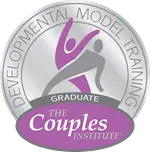Holistic counseling takes a comprehensive approach to mental health and well-being, considering the interconnectedness of the mind, body, and spirit. This type of counseling focuses on treating the whole person rather than just addressing symptoms. Learn more about the benefits of holistic counseling and how it can support your overall well-being.
What is Holistic Counseling?
Holistic counseling is a therapeutic approach that takes into account the interconnectedness of the mind, body, and spirit. It recognizes that various factors, including physical health, emotional well-being, and spiritual beliefs influence mental health. Holistic counselors aim to treat the whole person rather than just focusing on symptoms or specific issues. They may use a combination of traditional counseling techniques, alternative therapies, and lifestyle changes to promote healing and overall well-being. This approach emphasizes the importance of self-care, self-awareness, and personal growth in achieving optimal mental health.
The Benefits of Holistic Counseling.
Holistic counseling offers a range of benefits for individuals or couples seeking a comprehensive approach to healing. One of the main advantages is that it addresses the underlying causes of mental health issues rather than just treating symptoms. By considering the interconnectedness of the mind, body, and spirit, holistic counselors can help clients achieve long-lasting and sustainable improvements in their well-being. Additionally, this approach promotes self-care and self-awareness, empowering individuals to take an active role in their own healing process. Holistic counseling also encourages personal growth and development, allowing clients to explore their values, beliefs, and goals in order to create a more fulfilling and meaningful life. Overall, holistic counseling offers a holistic and integrative approach to mental health that can support individuals in achieving optimal well-being.
Integrating Mind, Body, and Spirit in Counseling.
Holistic counseling takes a unique approach by integrating the mind, body, and spirit in the counseling process. This means that counselors not only focus on their client’s mental and emotional aspects but also consider the physical and spiritual dimensions of their well-being. By addressing all of these aspects, holistic counselors can help clients achieve a deeper level of healing and transformation. They may incorporate techniques such as mindfulness, meditation, yoga, and energy work to promote balance and harmony in all areas of a person’s life. This integrative approach recognizes that true healing involves not only addressing symptoms but also nurturing the whole person. By integrating mind, body, and spirit, holistic counseling offers a comprehensive and effective approach to supporting individuals on their healing journey.
Techniques and Modalities Used in Holistic Counseling.
Holistic counseling utilizes a variety of techniques and modalities to support clients in their healing journey. Some common techniques used in holistic counseling include mindfulness, meditation, yoga, and energy work. Mindfulness involves bringing one’s attention to the present moment and cultivating a non-judgmental awareness of thoughts, feelings, and sensations. This practice can help clients develop greater self-awareness and reduce stress. Meditation is another technique used in holistic counseling, which involves focusing the mind and achieving a state of deep relaxation. This practice can help clients cultivate inner peace and clarity. Yoga, a physical practice that combines movement, breath, and meditation, can also be incorporated into holistic counseling to promote physical and emotional well-being. Energy work, such as Reiki or acupuncture, focuses on balancing the body’s energy systems to support healing. These techniques and modalities, along with others, are used in holistic counseling to address the whole person and promote overall well-being.







